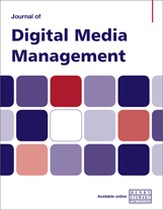Gone in an Adobe Flash: Five new frameworks to preserve born-computational literary art for the future
Abstract
Brown University is the source of some of the earliest, most experimental and innovative works in the field of born-digital literary arts. Faculty and students at Brown regularly produce work in a variety of experimental formats designed for digital environments, such as neural-net and model-based aesthetic text-generation programs and fully immersive three-dimensional poetry, and have done so since the early 1960s. Like many institutions, however, Brown University does not yet have models or strategies to preserve many of these works that push boundaries of electronic literature. This paper provides a case study of the university’s New Frameworks to Preserve and Publish Born-Digital Art project, which approaches preservation by focusing first on the works that are difficult to preserve in order to determine what approaches will work best for them, as well as to encourage artists working in these areas to pursue technically innovative art with the knowledge of how to go about sustaining their work for future generations. The paper outlines the preservation frameworks developed for five innovative works that rely on dependencies including Adobe Flash (a technology that recently reached its end of life), other ageing libraries, browser extensions and broken custom code. The frameworks outlined aim to provide a sustainable future for accessing these five works, as well as a guide for institutions and artists alike in how to preserve difficult, technologically innovative art for future generations.
The full article is available to subscribers to the journal.
Author's Biography
Ashley Champagne is the Principal Investigator of the ‘New Frameworks to Preserve and Publish Born-Digital Art’, a project funded by the National Endowment for the Arts. The project was inspired by her conversations with practitioners in the digital literary arts who were not sure how to preserve their works. Dr. Champagne is the Director for the Center for Digital Scholarship at Brown University Library and the Cogut Institute Lecturer for the Humanities. She earned her PhD in English from University of California, Santa Barbara.
Cody Carvel is the Digital Scholarship Technologist at the Center for Digital Scholarship, as well as a poet, designer and technologist who came to library science work while undertaking projects to preserve and digitise literary ephemera, short-run periodicals, and at-risk audio-visual materials related to American poetry. Cody has an MFA in poetry from the University of San Francisco and an AB from Harvard College where they graduated with degrees in African-American Studies and English. More recently, they worked as the researcher, web designer and audience engagement manager for the Slate/Panoply podcast, Our National Conversation About Conversations on Race. Their poetry has been featured in Userlands, Mirage #4 Period(ical), Edna, Tin House, Yellow Medicine Review, Elderly and Red Ink.
E. Patrick Rashleigh Patrick Rashleigh is the Head of Digital Scholarship Technology Services at the Center for Digital Scholarship, Brown University Library, where he leads a development team that collaborates with faculty to create digital scholarly products. He is technical lead on the Stolen Relations project, which seeks to document instances of historical enslavement of Indigenous people. He is also an instructor and teaches a variety of classes on communication, analysis and digital technology to students, faculty and staff. He has degrees in English and ethnomusicology.
Khanh Vo is the Digital Humanities Specialist for the Center for Digital Scholarship at Brown University where she collaborates on faculty-led digital projects and develops new, sustainable research projects, instructional materials and curricular offerings in digital methods in the humanities. Dr Vo earned a PhD in American studies from William & Mary and completed her postdoctoral fellowship with the Jackman Humanities Institute and Critical Digital Humanities Initiative at the University of Toronto. She currently serves as the vice-chair for the American Studies Association DH Caucus.
Hilary Wang is the Digital Archivist at the John Hay Library at Brown University where she manages and processes born-digital collections and is developing the digital preservation programme for University Archives and Special Collections. She holds an MSLIS from the Pratt School of Information and volunteers on the editorial board of bloggERS, the Electronic Records Section blog for the Society of American Archivists.
John Cayley is Professor of Literary Arts at Brown University, where he co-directs a graduate track in digital and cross-disciplinary language art. He is a poet, writer, theorist and maker of language art in networked and programmable media. He has explored language art in many forms, including dynamic and ambient poetry, text generation, transliteral morphing, aestheticised vectors of reading and transactive synthetic language. He seeks to compose as much for reading in aurality as in visuality, and investigates the ontology of language in the context of philosophically informed practice and research.
